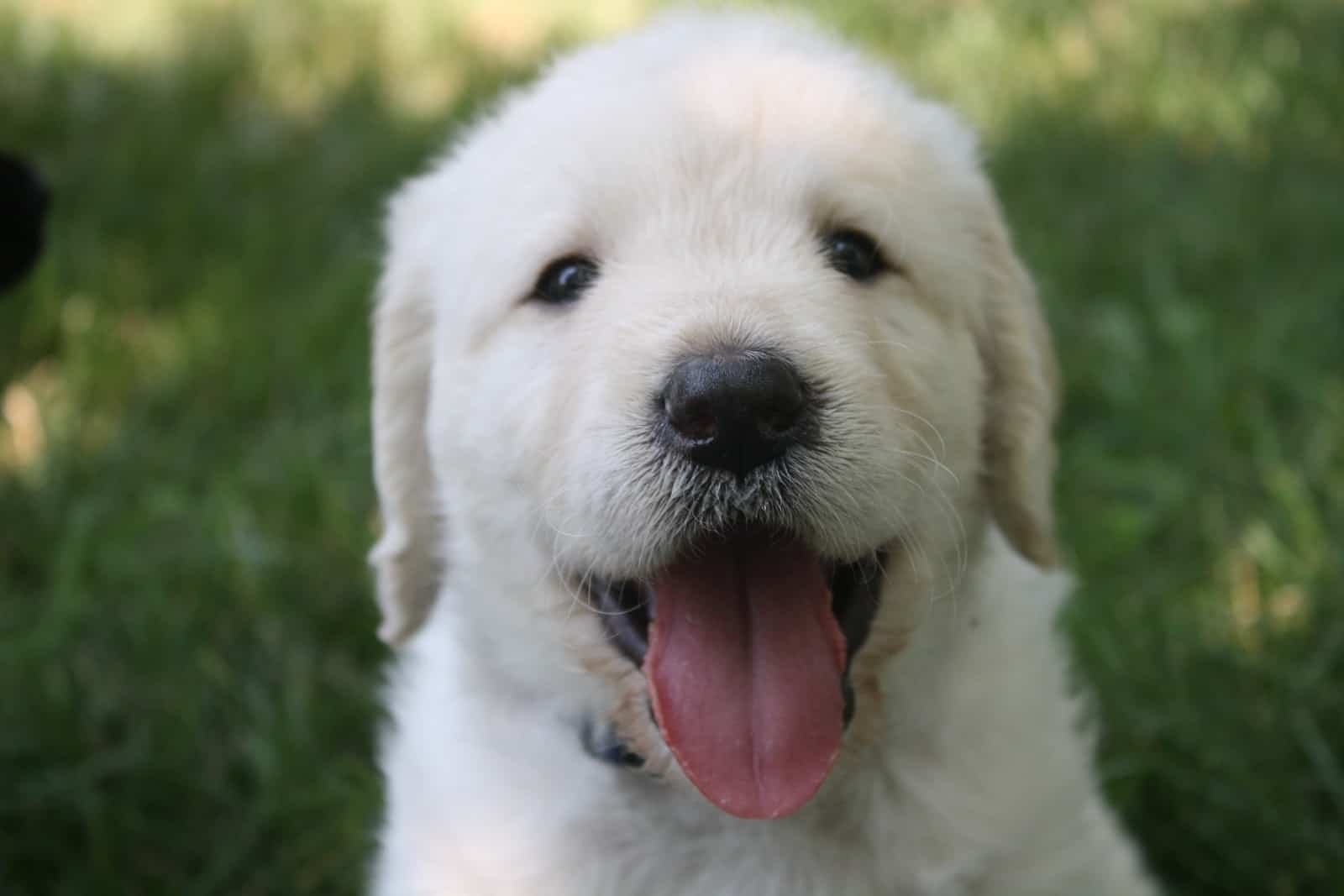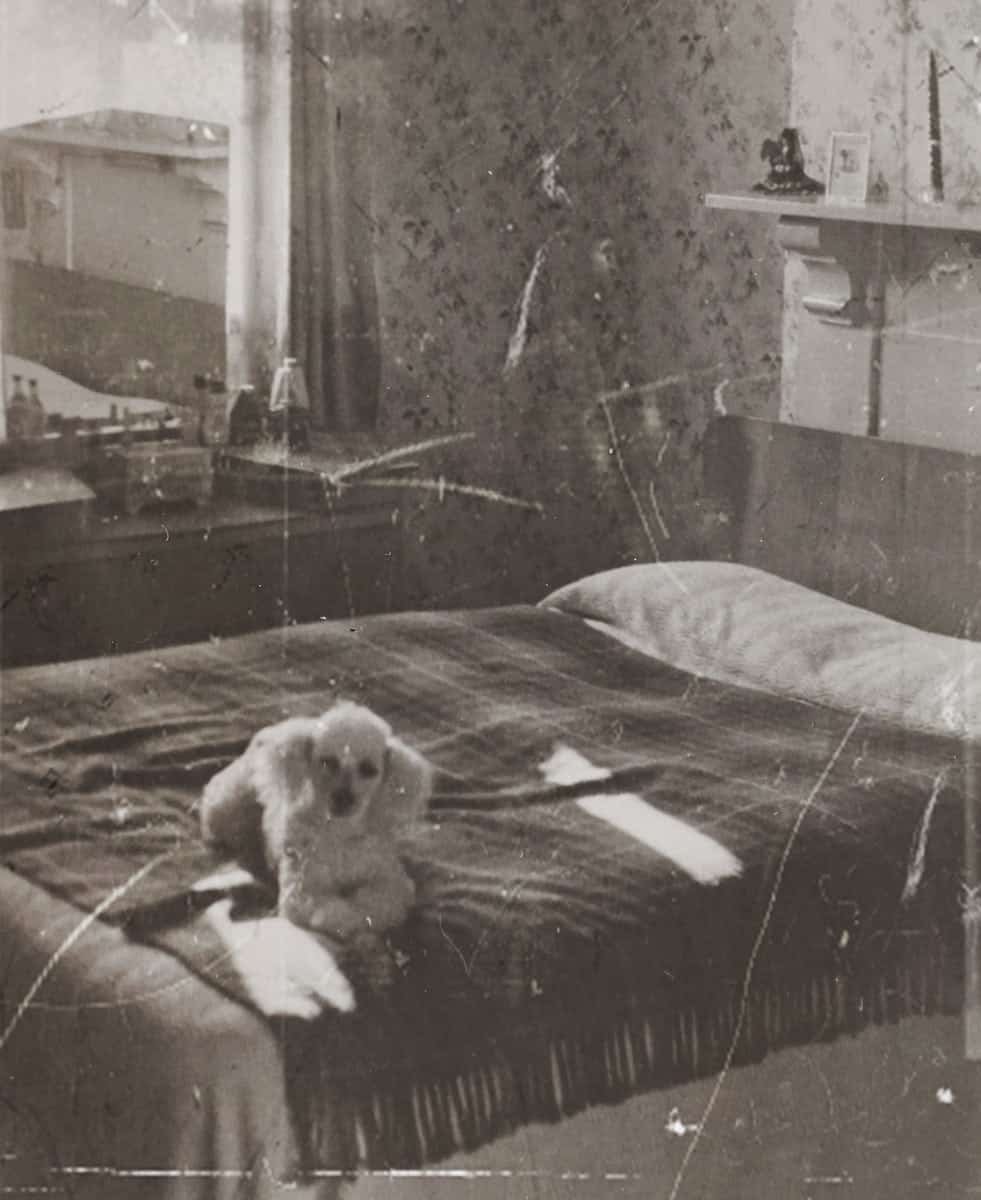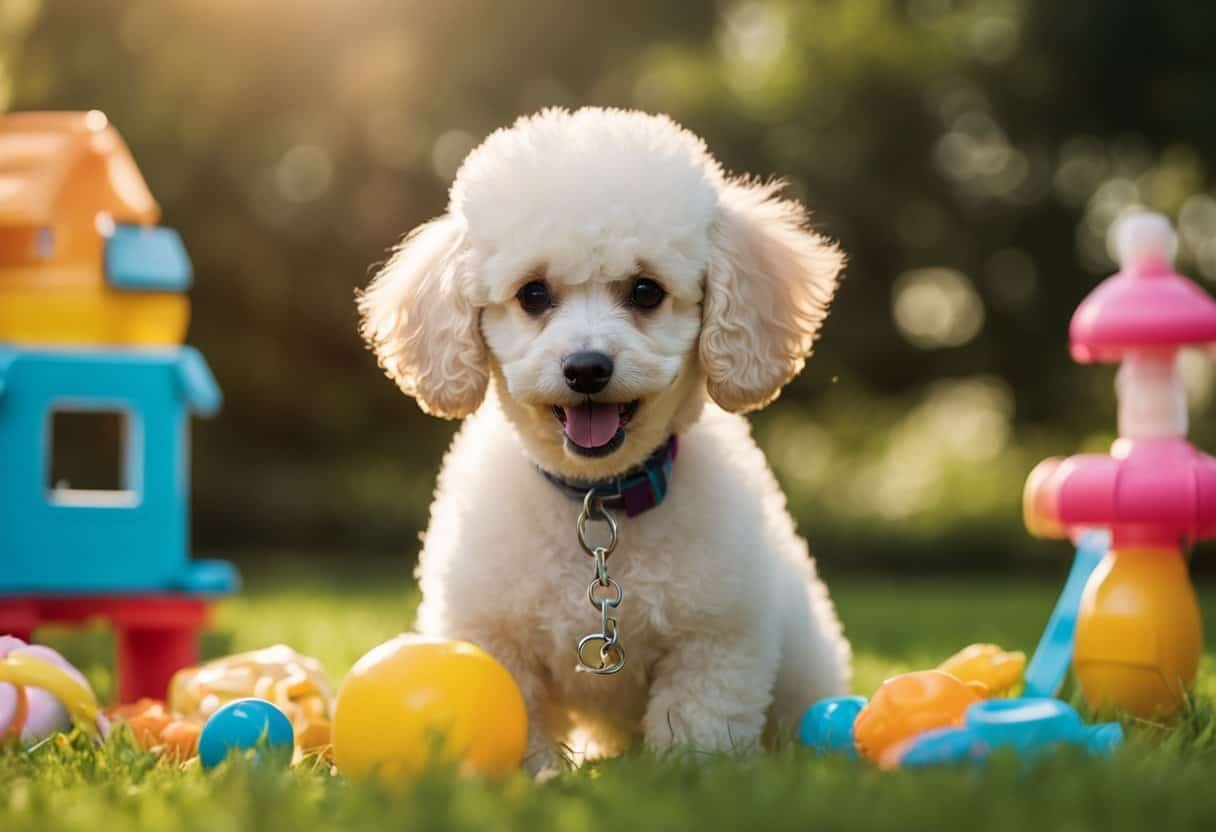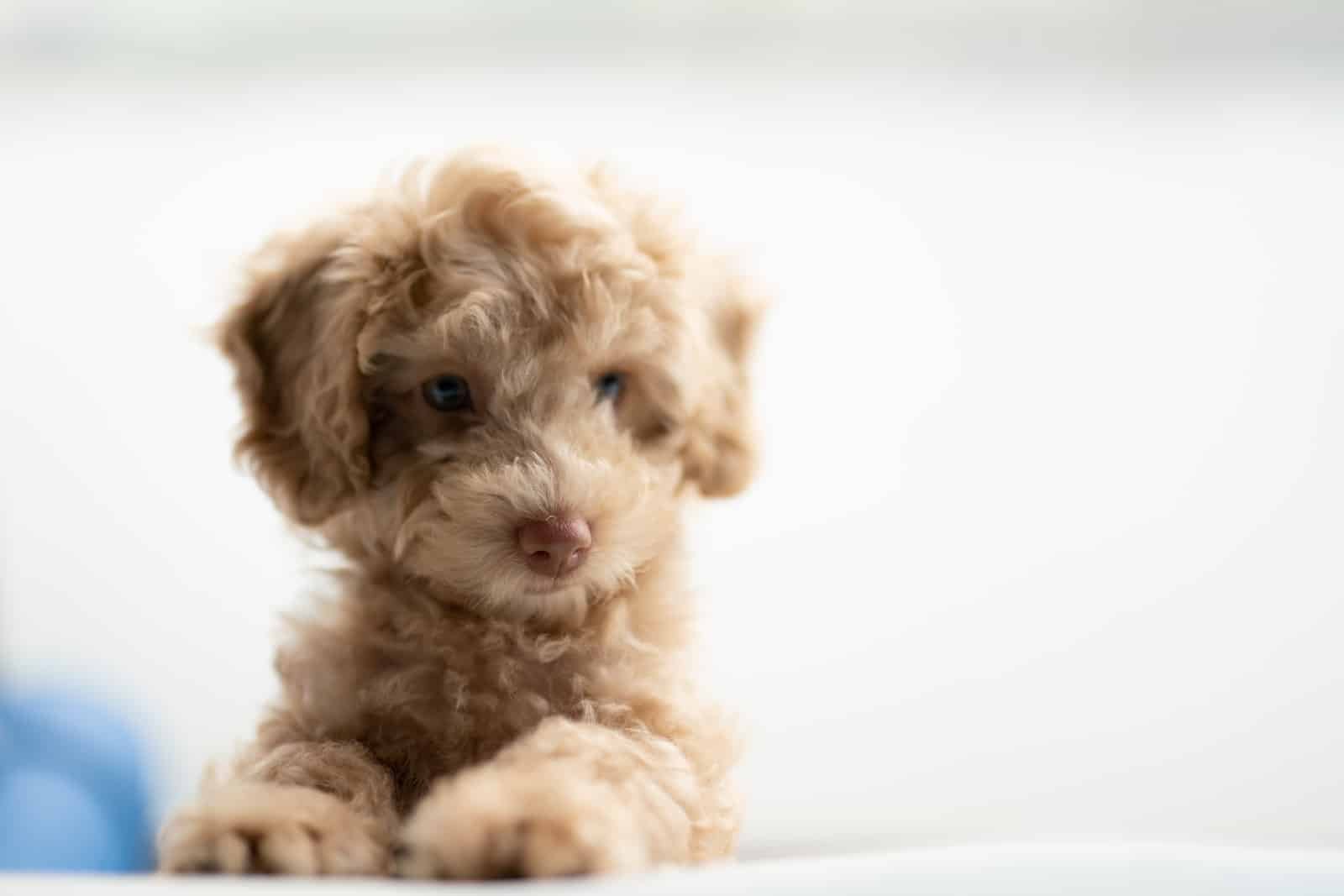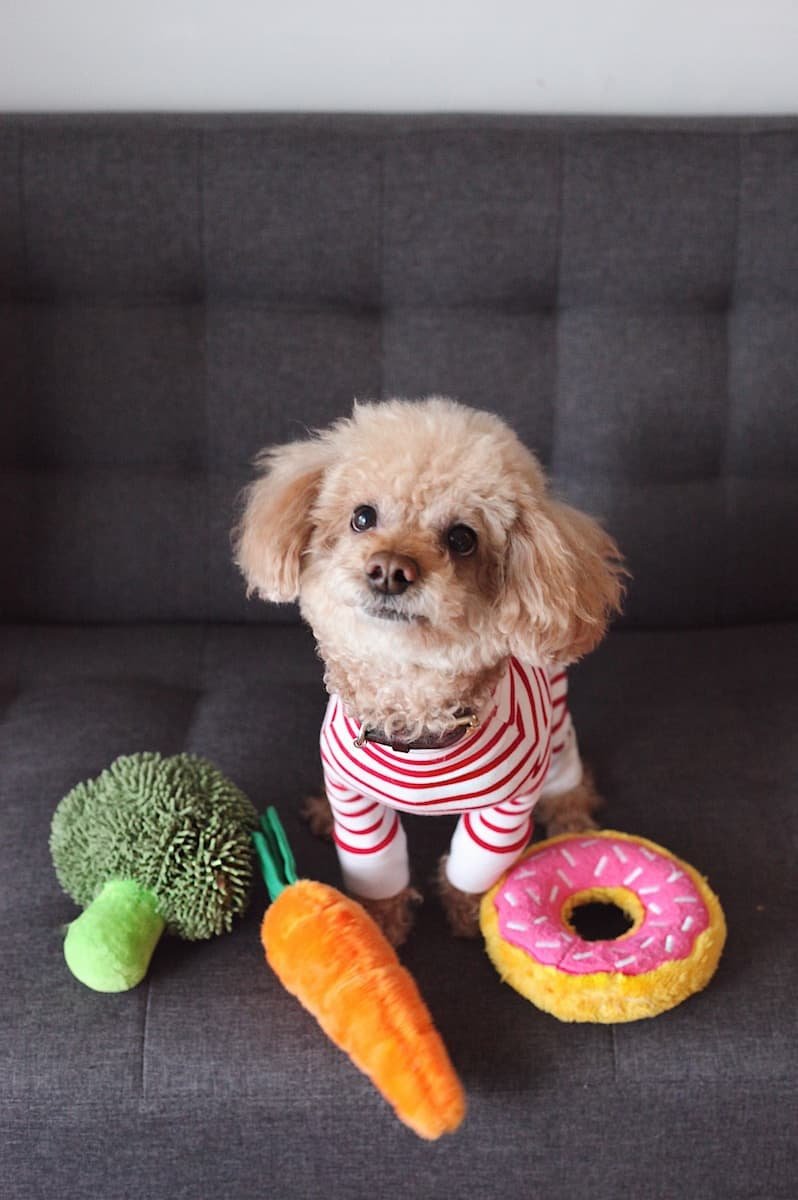
Are you looking for a canine companion that is both intelligent and affectionate? Look no further than the Toy Poodle! These pint-sized pooches have been beloved by families for centuries, thanks to their playful nature and charming personalities. From their history as water retrievers to their impressive intelligence levels, learn all there is to know about this extraordinary breed in our comprehensive guide.
Overview of Toy Poodles
Toy Poodles are a small, intelligent breed known for their curly coats and loving personalities. They typically range in size from 4 to 6 pounds and stand at 8-10 inches tall. Toy Poodles have been popular since the 1600s when they were used as water retrievers. Today, they remain one of the most popular breeds, and are often considered being one of the smartest dog breeds.
Toy Poodles are energetic and require plenty of mental stimulation. They make wonderful companions for families who like to stay active, as well as those looking for a lap dog who loves cuddles. Toy Poodles can also be trained to do various tricks or competitions, such as agility or obedience trials.
Despite their small size, Toy Poodles are healthy breeds with few health concerns aside from occasional eye diseases or Legg-Calvé-Perthes disease, which affects the hip joint. Toy Poodle puppies must also be monitored closely for adrenal gland issues during their first year of life.
Overall, Toy Poodles make great family pets thanks to their low barking levels and high activity level! With proper care, love, and training, these pups will bring joy into your home for years to come!
History of the Breed
Toy Poodles have been around since the 1600s when they were used as water retrievers and companions. This breed was originally developed by crossing Standard Poodles with smaller breeds such as Miniature Poodles. Over time, the Toy Poodle became its own distinct breed. In 1886, it was recognized by the Kennel Club of England and in 1887, the Toy Poodle was officially recognized by the American Kennel Club.
The breed standard for Toy Poodles is that they should not exceed 10 inches in height and should weigh between 4 to 6 pounds. Newborn puppies may be larger or smaller than this size range but will typically grow into it.
Toy Poodles are known for their intelligence, energy levels, and loving personalities, which makes them a great family dog for both children and adults alike!
Characteristics
Toy Poodles are an intelligent breed that loves to learn and can even be trained to do tricks. They thrive on mental stimulation and need plenty of attention from their owners in order to stay happy and healthy. Toy Poodles require daily exercise, but their small size makes them suitable for apartments or smaller living spaces. This breed also has a low barking level, which is great for people who live in close proximity to neighbors.
Toy Poodles have a lot of energy and love playing with family members, so they make excellent companions for activities such as walking, jogging, or playing fetch in the park. They have a moderate activity level, so they can keep up with the family while still being able to relax at home. Toy Poodles typically have curly coats that come in many colors including white, black, cream, apricot, red, silver and blue.
Toy Poodles are also considered being one of the healthiest breeds around due to their small size and lack of common genetic conditions, such as Legg-Calvé-Perthes disease or eye diseases like Progressive Retinal Atrophy (PRA). Even though they are a robust breed, Toy Poodles may suffer from adrenal gland problems or separation anxiety if not given enough mental stimulation and human interaction.
Physical Appearance
Toy Poodles are small, compact dogs that stand between 4 to 6 inches tall and typically weigh between 4 to 6 pounds. They have a square-shaped body and a long head with drop ears, dark round eyes, and a slightly wavy coat. Their coats can come in many colors, such as white, black, cream, apricot, red, silver and blue. Toy Poodles have curly fur that should be brushed every few days to remove tangles and mats.
They also have long legs with webbed feet which help them swim better than other breeds. Although they are small, their personalities are larger than life! Toy Poodles are known for being loyal companions who love to spend time with their owners. They make great family pets as they are friendly towards both children and other animals.
Temperament
Toy Poodles are known for their intelligence, alertness and friendly personalities. They are very loyal to their owners and like to spend time with them. Toy Poodles are eager to please, which makes them easy to train. They have a high energy level, so it’s important that they get plenty of exercise and mental stimulation.
Toy Poodle puppies can have a lot of energy, but as they mature into adults, their activity levels will decrease. However, this does not mean that they become lazy — Toy Poodles still need regular exercise and playtime. They also need socialization with other people or dogs in order to stay happy and healthy.
Toy Poodles rarely bark unless there is something out of the ordinary happening nearby or if they feel scared or threatened. If left alone too long, they may suffer from separation anxiety. As a result, it is best to provide plenty of attention and company for your Toy Poodle.
Health and Lifespan
Toy Poodles are typically a healthy breed, but there are some health issues that potential owners should know. This includes legg-calvé-perthes disease and eye disease. Regular visits to the vet for checkups and vaccinations can help catch any problems early on.
In terms of lifespan, Toy Poodles usually live between 12 to 15 years with proper care and nutrition. Keeping your Toy Poodle at a healthy weight is important in order to extend their life expectancy. A good diet combined with regular exercise can go a long way in ensuring your Toy Poodle lives a long, healthy life.
Overall, Toy Poodles make great family pets due to their intelligence and friendly personalities. With the right care, they can easily become part of the family for many years to come.
Grooming Requirements
Toy Poodles require regular grooming to maintain their beautiful coats. The coat should be brushed daily to keep it free of tangles and mats, and it should also be trimmed every 4 to 8 weeks. Depending on the length of the coat, brushing may need to occur more often. During bath time, use a shampoo suitable for dogs and conditioner for the best results.
Since Toy Poodles are prone to tear stains, regular cleaning of the eyes is necessary as well. This can be done with a damp cloth or pet wipes made specifically for this purpose. Nails should also be trimmed regularly in order to prevent injury or pain from overgrown nails. Finally, Toy Poodles require dental care just like any other breed; regular brushing as well as annual cleanings by a vet will help ensure your dog’s teeth stay healthy and strong.
Overall, Toy Poodles require relatively little maintenance when it comes to grooming; however, proper care is still very important in order to keep them looking their best!
Allergies
If you’re considering adopting a Toy Poodle, it’s important to make sure that you or your family aren’t allergic to the breed. Toy Poodles do have fur and will shed year-round, making them more likely to trigger allergies than breeds without fur or those that only shed seasonally. Before bringing home a Toy Poodle, make sure to have everyone in the household tested for allergies so you can determine if this breed is right for you.
Barking Level
Toy Poodles are known for being relatively quiet dogs. They don’t bark excessively, but they can be more vocal than some other breeds. Generally, Toy Poodles will only bark when something has startled them or if they feel threatened. As with all breeds, proper training is key to curtailing any unwanted barking.
When it comes to the barking level of Toy Poodles, there are a few things to keep in mind. First, they tend to be more prone to separation anxiety than some other breeds, so they may bark when left alone for long periods of time. A good way to combat this is by providing your pup with plenty of mental stimulation and activities while you’re away. Additionally, regular walks and playtime can help wear them out and make them less likely to bark out of boredom.
Finally, it’s important to remember that no two dogs are exactly alike; what works for one may not work for another. With patience and consistency in training, you should be able to achieve an acceptable level of barking from your Toy Poodle.
Activity Level
Activity level is an important factor to consider when looking at Toy Poodles as a pet. Even though they are considered a small breed, Toy Poodles are full of energy and require regular exercise. They need daily walks or runs, as well as plenty of mental stimulation with toys and puzzles. Toy Poodles can also benefit from activities like agility training, which helps them stay physically fit while having fun.
When it comes to indoor activities, most Toy Poodle owners find that their dogs enjoy playing fetch and tug-of-war. Teaching your pup tricks such as “sit” and “down” can be rewarding for both of you. Keeping your pup mentally stimulated will help prevent boredom and destructive behavior caused by too much pent up energy.
Finally, it’s important to remember that all dogs have their own unique personalities; some may be more active than others. Finding the right balance between physical activity and relaxation time is key to having a happy and healthy Toy Poodle companion in your home!
Maintenance and Grooming
When it comes to Toy Poodles, maintenance and grooming are important. Toy Poodles require regular hair brushing and combing to keep their fur clean and healthy. They should be bathed monthly or so, depending on their individual needs and owners’ personal preferences.
When grooming Toy Poodles, it’s important to be cognizant of their eyes and ears. Check your pup’s eyes regularly for any discharge or redness. If you notice anything unusual, contact your veterinarian as soon as possible. Regular ear cleaning can help prevent infections as well as reduce odor.
Another area that requires special attention is the nails; they should be trimmed every two weeks or so. It is important that you get your Toy Poodle used to grooming at an early age in order to prevent any issues later on.
Also, consider Toy Poodles’ thick coats, which need regular brushing and clipping in order to keep them looking their best. If you don’t feel confident doing this yourself, it may be a good idea to find a professional groomer.
Size and Weight Requirements
Toy Poodles come in two sizes: standard and miniature. Standard poodles typically weigh between 45-70 pounds and stand at 15 inches or taller. Miniature poodles are much smaller, usually weighing 4-6 pounds and standing at 10-14 inches tall.
The breed standard outlined by the American Kennel Club (AKC) states that Toy Poodles should have a “distinctly square outline” in proportion to its body size. This means that their height should be equal to their length, from shoulder to hips. They should have a long head with a moderate stop and a muzzle that is slightly shorter than the skull.
When it comes to coat color, Toy Poodles can come in black, white, apricot, red, brown and silver. Their curly coats require regular maintenance so they don’t become matted or tangled. Grooming your pup regularly will help keep its coat healthy and looking great!
Toy Poodle puppies are born small but will grow quickly during the first few months of life; this is why it’s important to provide them with enough food and exercise from an early age. With proper care and nutrition, these little bundles of joy can grow into happy and healthy adults for many years to come!
Puppies vs. Adults
Toy Poodles come in two sizes: standard and miniature, but the size isn’t the only difference between puppies and adults. Newborn pups are born with eyes closed and no teeth, while adult Toy Poodles have a full set of teeth and open eyes. When it comes to behavior, puppies tend to be more energetic than adults as they explore their surroundings and get accustomed to new environments. Puppies may also need more rest than adult dogs, so it’s important to provide them with enough sleep for healthy growth.
Nutrition is another important factor when comparing puppies vs. adults; puppies need more calories per pound of body weight than adults do because they are skyrocketing. They also require special puppy food that is designed for their specific nutritional needs during this stage of life. It’s important to keep an eye on their diet as well since too much or too little can affect their health negatively.
Finally, socialization is key when it comes to raising a happy pup! Taking your Toy Poodle puppy out regularly will help them become accustomed to other people and animals which will make them better-behaved adults later on in life. With proper care and nutrition, these little bundles of joy can turn into loyal companions for many years to come!
Miniature vs. Toy Poodles
Miniature and Toy Poodles are both popular breeds of the Poodle family, but there are some differences between the two that should be considered. The average Miniature Poodle stands at 14 to 15 inches tall at the shoulder, while Toy Poodles are usually around 10 inches or less. Miniature Poodles tend to have more energy than their Toy counterparts, making them better suited for those who can provide plenty of physical activity and mental stimulation. They also weigh in at about 12 to 15 pounds compared to 4 to 6 pounds for a Toy Poodle.
Toy Poodles may be better suited as a lapdog or companion animal due to their smaller size and lower energy level. They may also require less exercise than Miniature varieties because of their size and age. However, they may need more frequent grooming due to their long, curly coats which can become matted if not cared for properly.
Both sizes of the breed are known for being intelligent and loyal companions with a playful nature. As long as they get enough exercise, playtime, love and attention, either size is sure to make an excellent addition to your family!
Weight Range for Toy Poodles
Toy Poodles are an intelligent and loving breed of dog that make great companions for any family. Despite their petite size, they can weigh anywhere from 4 to 6 pounds as adults. This weight range is determined by a combination of factors, including genetics and diet.
Toy Poodles come in a variety of colors and coat lengths, from wiry to curly. They may also have different body types, such as sight hound or cobby. The weight range for Toy Poodles will vary depending on the specific type of dog. For instance, sight hound-type Toy Poodles tend to be lighter than cobby-type varieties.
It is recommended that Toy Poodles do not exceed the weight limit of 6 pounds for the sake of their health and well-being. An overweight Toy Poodle may be prone to respiratory problems due to its small size and lack of adequate exercise. It is important to talk with your veterinarian if you have concerns about your pup’s weight or nutrition needs.
Overall, the ideal weight range for Toy Poodles should fall between 4 and 6 pounds at adulthood in order to ensure optimal health and wellbeing. With proper care, regular exercise and a nutritious diet, your beloved pup is sure to stay within this healthy range for many years!
Diet and Food Choices
Toy Poodles, like many breeds, have specific nutritional needs they thrive on. Toy Poodles are small in stature but require an appropriate amount of calories for their size and activity level. Choosing a high-quality, age-appropriate food from a reputable brand is essential for the health and wellbeing of your pup.
Additionally, puppies should be fed several times throughout the day in order to meet their growing nutritional needs. As your pup gets older, you can transition them to two meals a day as an adult.
It is important to note that Toy Poodles have sensitive stomachs, so it’s best to stick with a diet of high-quality, grain-free food. Avoid foods that contain artificial ingredients, preservatives and fillers, which may upset their delicate digestive systems.
When feeding your pup , also make sure to provide plenty of fresh water and avoid overfeeding as this can lead to obesity. With the right diet, your Toy Poodle will have the energy it needs to keep up with your active lifestyle!
Breeding for Quality and Standardization
When it comes to breeding Toy Poodles, quality and standardization are of the utmost importance. Breeders must ensure their pups meet the breed standard as set forth by the American Kennel Club and other organizations. This includes specific measurements for size, coat length and color, as well as overall health and temperament.
Breeding for quality means that breeders should select dogs with the best genetics to create healthy puppies with desirable traits. Health screenings should be done on both parent dogs prior to breeding in order to identify any potential genetic issues like Legg-Calvé-Perthes Disease or eye disease. Puppies should also be monitored closely during their first few weeks of life in order to identify any illnesses or abnormalities that could affect their development.
Standardization is key when it comes to Toy Poodles, which is why breeders must strive to produce pups that adhere to the breed standard. This helps ensure Toy Poodles retain their distinctive look and temperament, while also providing families with a reliable source of companionship and loyal friendliness.
The Kennel Club Standards
The Kennel Club is the UK’s largest organization dedicated to promoting responsible dog ownership and protecting the health and welfare of all breeds. The Kennel Club sets strict standards for breeders to ensure their dogs adhere to the breed standard. This includes specific measurements for size, coat length and color, as well as overall health and temperament. Breeders must also ensure that both parent dogs have undergone health screenings prior to breeding in order to identify any potential genetic issues.
In addition, the Kennel Club has a comprehensive program called Assured Breeder Scheme that helped protect puppies and ensure they are bred responsibly. Under this scheme, breeders are required to meet certain criteria such as providing puppies with permanent identification before they leave home, ensuring all puppies receive veterinary care, socialization and training from day one and meeting minimum housing requirements for both parents and puppies. By following these guidelines, breeders can guarantee that their Toy Poodles will be healthy, cheerful companions who meet the highest standards of quality and excellence.
Training and Mental Stimulation
Training and mental stimulation are essential for Toy Poodle owners. As a breed, Toy Poodles are known to be highly intelligent and have a strong desire to please their owners. They thrive on positive reinforcement and reward-based training methods such as clicker training, which helps them learn new behaviors quickly. To keep them engaged and mentally stimulated, it is important to provide plenty of daily activities such as playing fetch, teaching basic commands or taking part in agility classes. Providing cognitive toys such as puzzles or treat dispensers can also help keep their minds active while providing an outlet for their natural energy levels. With patience and consistency, Toy Poodles can become well-mannered family pets that bring joy and companionship to their owners’ lives.
Intelligence Levels in Toy Poodles
Toy Poodles are known for their intelligence, making them the perfect companion for busy families. Not only do they excel in obedience training and agility competitions, but they are also known to be one of the smartest dog breeds. This is because Toy Poodles has a remarkable ability to learn and retain information quickly, making them ideal candidates for learning new commands or tricks. Along with their high intelligence level comes an active mind that needs regular mental stimulation in order to stay happy and healthy. Providing plenty of activities such as playtime, problem-solving tasks, and interactive toys can help keep your Toy Poodle engaged and mentally stimulated while simultaneously strengthening the bond between you and your pup. With patience, consistency, and a little bit of love, you can have a smart, loyal companion that will bring joy to your home for years to come.
Potential Health Issues
Toy Poodles are a healthy breed, but they do have some health issues that pet owners should know. Legg-Calvé-Perthes disease is one of the most common ailments in Toy Poodles, which affects the hip joints and causes lameness and pain. Newborn puppies can also be susceptible to infections, so it’s important to monitor their health from birth. Adrenal glands can malfunction in Toy Poodles, causing them to exhibit signs of anxiety such as excessive barking or pacing. Separation anxiety is another issue that may affect some poodle puppies if left alone for too long. Fortunately, these health issues are manageable with proper care and monitoring by a veterinarian. To ensure your Toy Poodle remains healthy and happy, it’s important to maintain regular vet visits and adhere to their recommended diet and exercise plan.
Legg-Calvé-Perthes Disease Eye Disease
Legg-Calvé-Perthes Disease (LCPD) is a hip joint condition that affects Toy Poodles and other small breeds. The disease causes the ball of the femur to become weakened, leading to lameness and pain in the affected area. It’s most commonly seen in puppies between 4-6 months old, with smaller breeds being more susceptible than larger ones. Treatment for LCPD usually comprises medication and rest, as well as physical therapy, to maintain muscle strength. Surgery may be recommended in more severe cases.
Eye disease is another health concern for Toy Poodles and other small breeds. Common eye ailments include Progressive Retinal Atrophy (PRA), Glaucoma, Cataracts, and Dry Eye Syndrome (DES). These diseases can cause vision loss or blindness if left untreated, so it’s important to have your poodle examined by a veterinarian regularly. Treatment will depend on the severity of the problem, but may include medications or surgery depending on the type of disease present. Regular eye exams are critical for preventing long-term damage from these types of illnesses.
Family Activities Involving Toy Poodles
Toy Poodles are a popular breed because of their small size, intelligence, and loving personalities. Not only can they make great family pets, but they also enjoy taking part in family activities.
In terms of exercise, Toy Poodles love running around and exploring the world in short bursts of energy. Taking your poodle for routine walks or playing fetch with them is a great way to keep them physically active and mentally stimulated. Training can also be a fun activity that involves the whole family. Teaching basic commands like “sit” and “stay” can help improve communication between you and your pup.
When it comes to interactive toys, there are plenty of options for keeping your Toy Poodle entertained. Puzzle toys are great for keeping their minds sharp, while soft plush toys provide comfort and companionship during cuddle time. If you have other pets in the house, introducing them to one another will help create a stronger bond between all members of the family.
Last, don’t forget about bonding time! Taking your Toy Poodle out on special outings such as going to the beach or attending dog shows can be lots of fun for everyone involved—including your pup! With some dedication and patience, you’ll quickly find that having a Toy Poodle is an incredibly rewarding experience that will bring joy into every member of the family’s life.


